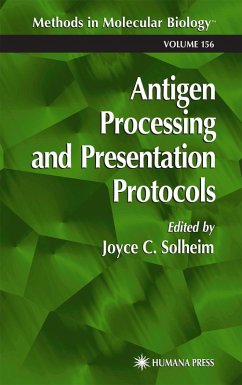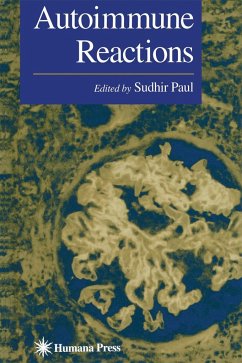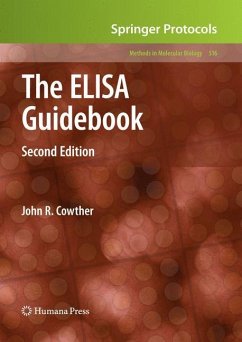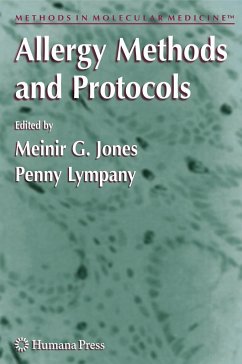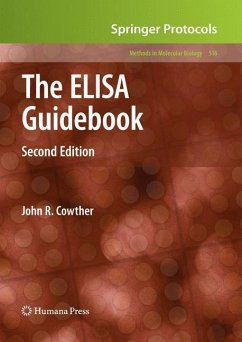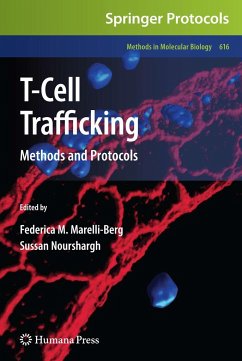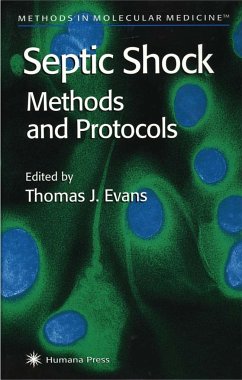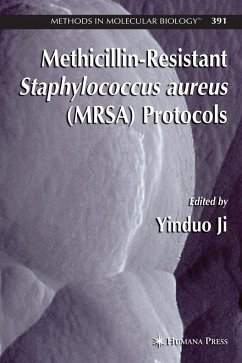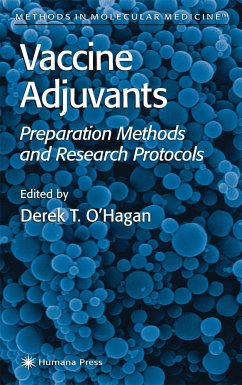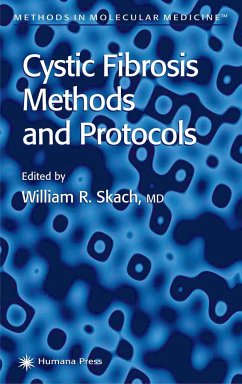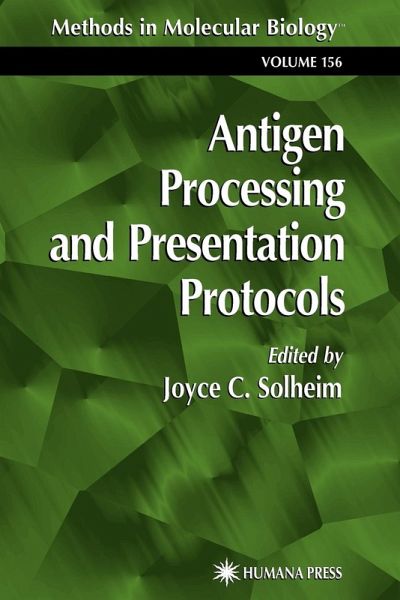
Antigen Processing and Presentation Protocols
Versandkostenfrei!
Versandfertig in 6-10 Tagen
76,99 €
inkl. MwSt.

PAYBACK Punkte
38 °P sammeln!
Antigen processing and presentation, as a field, explores a broad range of protein interactions and functions, both intracellular (in the cytoplasm and in the endoplasmic reticulum) and at the cell surface (between T cells and MHC molecules). To investigate such a diverse array, it is necessary that biochemical, cell biology, and immunological techniques all be employed. The purpose of Antigen Processing and Presentation Protocols is therefore to detail the most up-to-date techniques being used in this burgeoning field. Such techniques include those used to question how MHC-binding peptides ar...
Antigen processing and presentation, as a field, explores a broad range of protein interactions and functions, both intracellular (in the cytoplasm and in the endoplasmic reticulum) and at the cell surface (between T cells and MHC molecules). To investigate such a diverse array, it is necessary that biochemical, cell biology, and immunological techniques all be employed. The purpose of Antigen Processing and Presentation Protocols is therefore to detail the most up-to-date techniques being used in this burgeoning field. Such techniques include those used to question how MHC-binding peptides are generated, to test how peptides are delivered to MHC molecules, to analyze MHC peptide-binding patterns, and to assay the T-cell response to MHC/peptide. Antigen Processing and Presentation Protocols should aid both those new and those experienced in this area of research in extending the questions that can be asked and answered by the application of these current methods. For editorial assistance, I would like to thank Angela Beninga and Rachael Turnquist.





